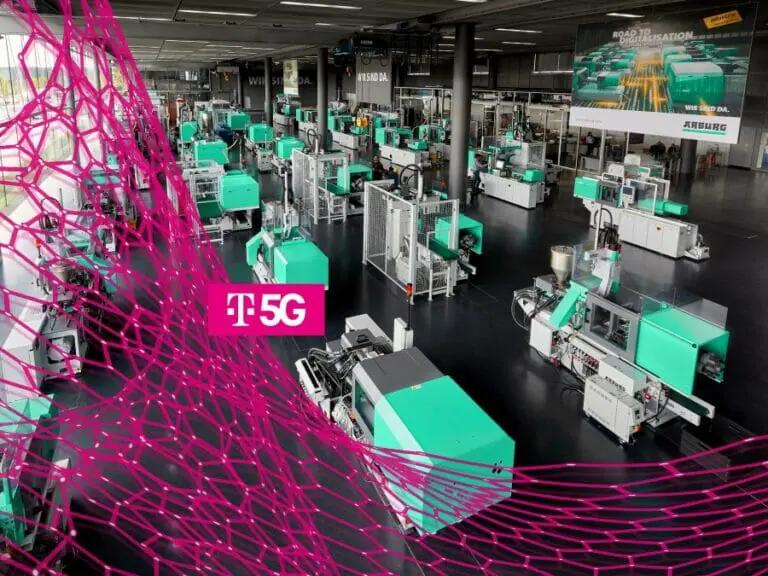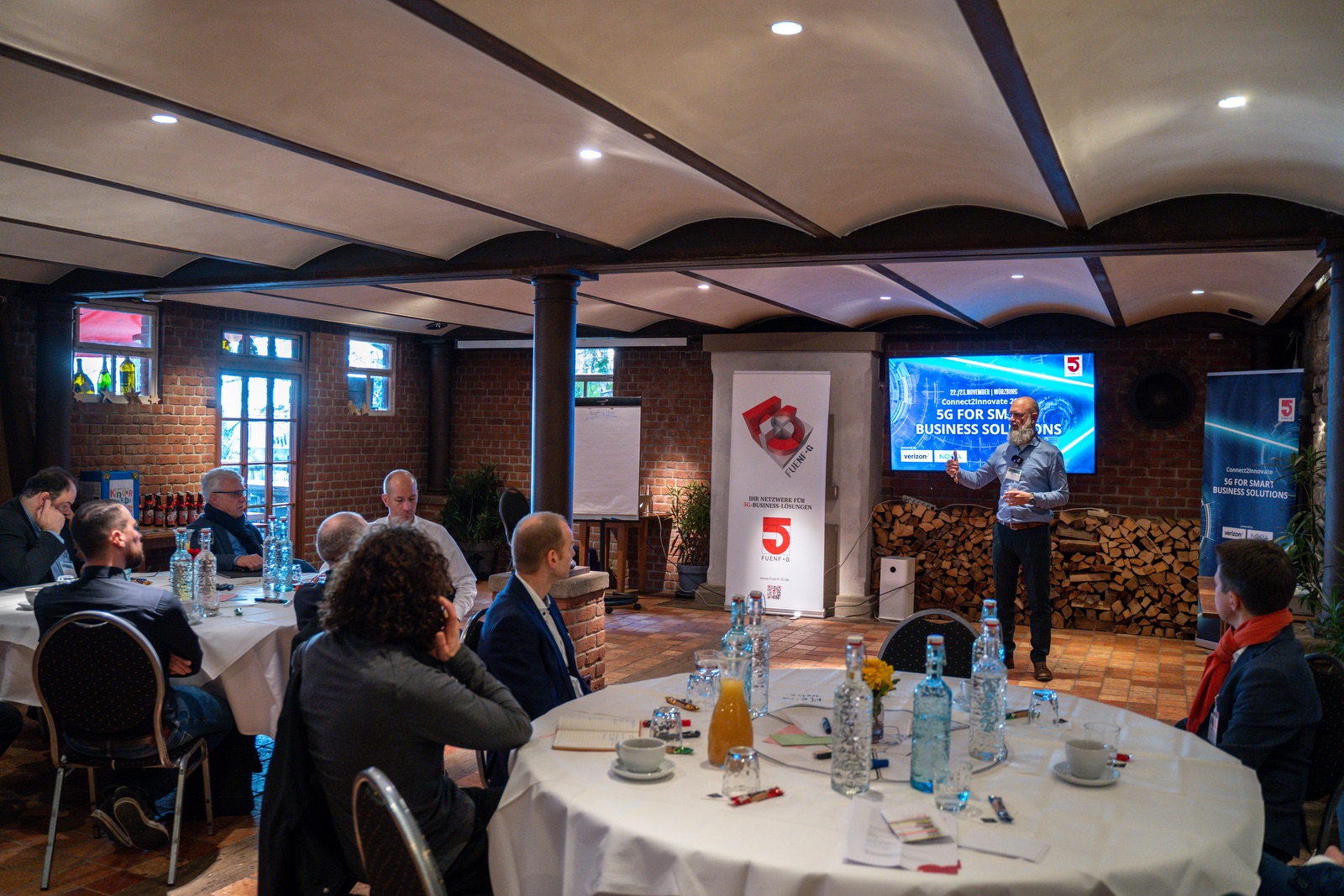It cannot be emphasized often enough: With 5G, the B2B World can now use its own industrial frequencies between 3.7 and 3.8 GHz for the first time. With Deutsche Telekom’s new campus network, both public and private mobile networks can be integrated for industrial purposes. The machinery manufacturer Arburg has successfully carried out the testing.
Deutsche Telekom has introduced a new business-focused service called “Campus-Netz M with industrial frequencies,” offering a private 5G network to businesses without the need for additional infrastructure investments. This service allows companies to utilize their exclusive 5G industrial frequencies in the 3.7 to 3.8 gigahertz (GHz) range for a private network – on infrastructure of Deutsche Telekom that is originally built for public networks only. Prior to its launch, the service underwent testing in January 2023 at the Arburg injection molding machine manufacturer’s 5G campus network.
Dual slice campus network
Initially, Deutsche Telekom’s offering operated only on the public 3.6 GHz frequency of its own 5G network. Even here it combined public network strengths with the privacy of a virtual private network, catering to businesses’ diverse connectivity needs. In a second step, the industrial frequencies in the 3.7 GHz band, which Arburg had applied to the Federal Network Agency, have been added. Telekom has an advantage over its competitors here because the frequencies allocated for the public 5G network are directly neighboring to the industrial frequencies.
With this concept, the mobile provider is able to supply customers with two adjacent 5G frequency bands and a total bandwidth of around 190 MHz – detached from public data traffic. In the “Campus-Netz M with industrial frequencies”, Deutsche Telekom provides its customers with both a private network and its own core network components of the public 5G mobile communications network. This separation of business-critical data from the public network ensures high bandwidths and unaffected data traffic. Furthermore, the service enables the use of exclusive SIM cards for connected devices and guarantees private 5G network performance of up to 1 gigabit per second for downloads. Meanwhile, public 5G coverage remains accessible alongside this private offering.
Cost-effective and secure 5G for companies
Deutsche Telekom has aimed to facilitate businesses’ digitalization and optimization efforts with this 5G Campus Network offering. By allowing companies to integrate their own frequencies into local 5G networks cost-effectively, businesses can access additional and exclusive 5G bandwidth for their digital applications, according to the mobile operator. The integration of this 5G Campus solution at Arburg, an early adopter, has allowed the company to explore innovative applications, including automated production processes, separate from public data traffic. This solution is also open for testing by customers from various plastic processing industries.
“With the integration of Deutsche Telekom’s new 5G campus solution, we are leveraging synergies and igniting the next stage in digitization for efficient manufacturing of plastic products. We were able to connect to the existing campus network without any additional construction work. And thanks to our own 5G industrial frequencies, we now benefit from even more 5G bandwidth for the digitization and networking of our machines and systems.”
Jürgen Boll, Managing Director Finance, Controlling, IT at Arburg.
Arburg: applied testing for various industries
Deutsche Telekom integrated the new product into the campus network of Arburg’s corporate headquarters at the beginning of 2023. The machines at the Arburg Customer Center in Lossburg were equipped with special routers and exclusive SIM cards to use the industrial frequencies. Detached from public data traffic, Arburg can, thus, test innovative applications – such as automated production processes. At the headquarter, customers from various plastics processing industries, such as the automotive, electrical, and packaging industries or medical technology, can also test digital manufacturing concepts based on 5G campus networks.









Leave A Comment